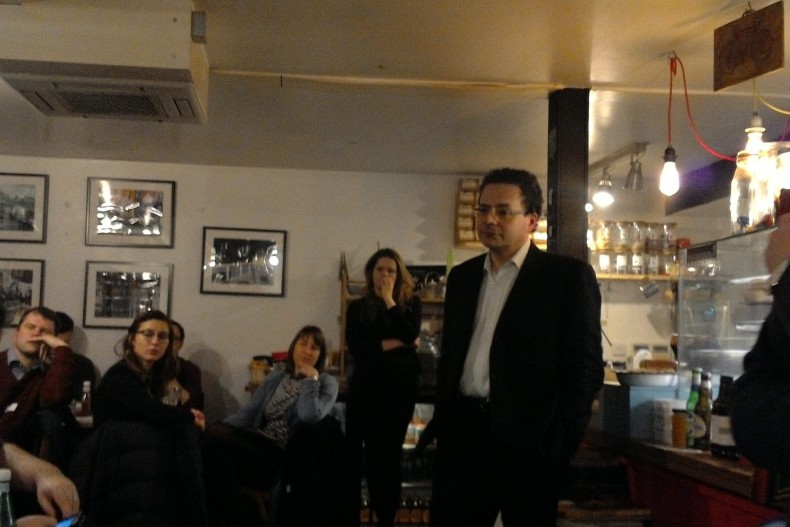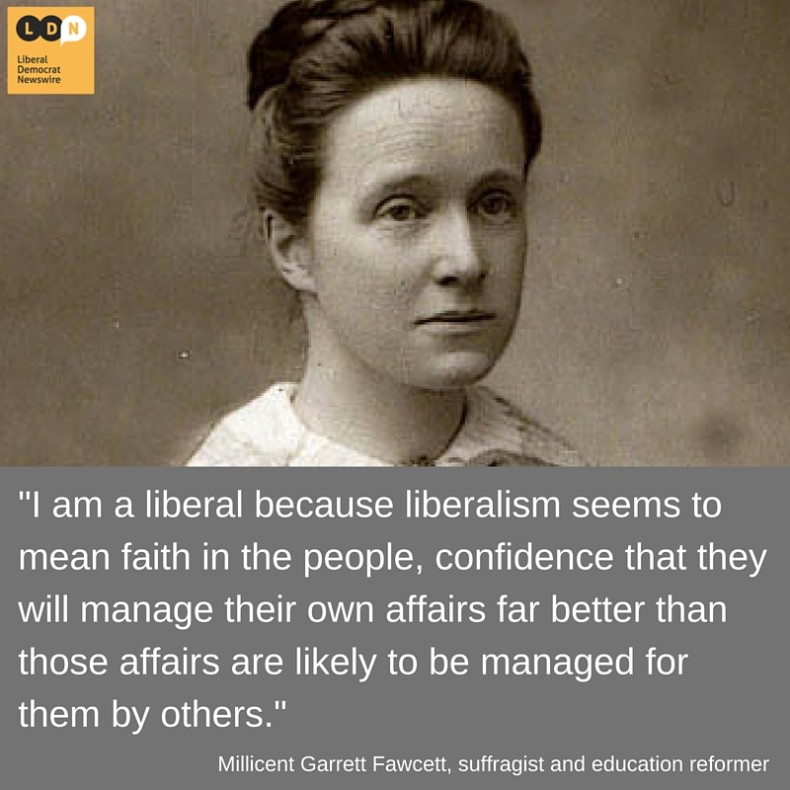Success for Your Liberal Britain – a new way of engaging Liberal Democrats
On Tuesday night I was one of the speakers at the pilot for the excellent Your Liberal Britain project. It is being run by a group of Liberal Democrat members who are pioneering a new way of engaging with members and supporters about what the Liberal Democrats believe and why.
The idea is to hold a series of events on the theme of:
What kind of society do you want to create and how would it be different from the society we have today?
The basic format is a short speech setting from someone out a vision of their Liberal Britain, followed by questions from the floor, repeated three further times, followed by a straw poll and then a more a more general discussion with everyone asked to write down their own answer before leaving. I was one of the four speakers along with Elaine Bagshaw, Jonathan Fryer and Emily Tester.
The Your Liberal Britain format worked very well and made for a much more interesting event than the traditional panel of four format beloved of fringe meetings and conference events.
Well done to the organisers and thank you to everyone who turned up. You can read more about Liberal Britain in the piece from one of its founders, Jim Williams, in Liberal Democrat Newswire #74.
The pilot itself took place in the City and East GLA constituency in London, just next to the Olympic Park and another example of the energetic and imaginative drive to involve members across a stretch of urban weakness for the party – one of the reasons I’ve tipped it as a seat to watch to judge the rate of the #LibDemFightback.
Here’s what I said (or rather, what my written notes show I intended to say):

I’d like to start with a quote from the suffragist Millicent Garett Fawcett:
I am a liberal because liberalism seems to mean faith in the people, confidence that they will manage their own affairs far better than those affairs are likely to be managed by others.

It captures two essentials of being a liberal and having a liberal country.
A positive attitude towards fellow humans rather than a suspicion, or even dislike, because someone else looks different, acts different or is from somewhere different.
And a belief that people are usually their own best judges of what is best for themselves. The state doesn’t tell you what to do. You decide for yourself.
But to make the idea of people managing their own affairs a reality, people have to have the power, the knowledge, the resources and the freedom to do so.
Hence the gem in the preamble to the Liberal Democrat constitution. Much of that preamble is a horribly impenetrable slab of text with long sentences, longer lists and even longer paragraphs.
But in it is this gem:
No one shall be enslaved by poverty, ignorance or conformity.
That is a good vision for a liberal Britain, but that trio excludes a fourth requirement to avoid enslavement: power.
Cracking the preamble’s trio certainly help with the fourth but there is more to it than that.
Power is also about how our rules are written, not only for the state but also the rules for the rest of our lives.
Which is where my test for a liberal Britain comes in. Because often the power that we have in the rest of our lives to vote on matters is only nominal.
Now it doesn’t really matter if the electoral mechanics for a Saturday night TV show are open to multiple voting.
And you won’t be surprised to hear that there’s plenty I would like to change about how our public elections are run, starting with the electoral system itself.
But my test lies elsewhere.
For at the moment the sort of electoral abuses that would cause outrage from even the most traditionalist, first-past-the-post loving right wing Tory MP are the norm across huge swathes of elections conducted in Britain for bodies and organisations of all sorts.
There’s the multi-million pound charity with elections for its governing board that held a ‘secret’ ballot which involved telling me I had to sign my ballot paper.
Or the building society which in the name of mutualism and member power sent out with the ballot mailing instructions from the incumbents on who I should and shouldn’t vote for.
Once you get away from the public spotlight of public elections, there’s a horrific undergrowth of organisations which nominally give power to people but then sneak it back away with ways of running elections that should be unthinkable.
This isn’t always ill-intentioned. It is sometimes incompetence or naivety.
And I’m happy to think well of those in one Liberal Democrat local party who organised a non-secret ballot for their local party elections. Well-intentioned, I’m sure. But also wrong.
So in truly Liberal Britain we would revolutionise the distribution of power, not only by ensuring no-one is enslaved by poverty, ignorance or conformity but also by ensuring that when people are nominally given power through ballot papers, it is not a spray-on bit of fakery but real power.
In sum, for me a liberal Britain is one that is based on Millicent Garett Fawcett’s belief that the best person to manage people’s affairs are those people themselves – and one that gives people the resources, the knowledge and the opportunity to make that belief a reality.
Leave a Reply